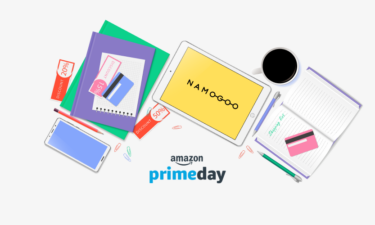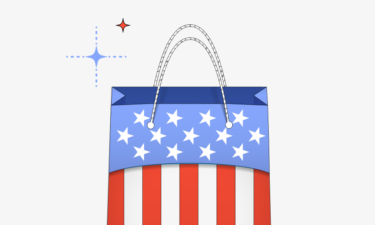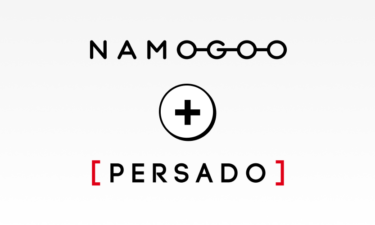A smart mix of social proof separates the most successful eCommerce brands from their (probably jealous) competitors.
So how would you rank your mix?
If you’re like most eCommerce brands, you might be focusing all your time and energy on collecting and promoting your best product reviews. This is a great and popular example of social proof, but it’s only step one.
If you want to drive more conversions, acquire more customers, and engage better with your tribe, you’ll need to utilize the other types of social proof too. So that’s exactly what this guide will help you do.
We’ll share everything you need to know about social proof, including the top four benefits of using it in your eCommerce marketing strategy. Then we’ll highlight some real-world examples to see how the best eCommerce brands are leveraging each type of social proof for greatness.
So let’s start with the basics:
Social Proof Definition: What Is Social Proof?
Social proof is a psychological phenomenon whereby people are more likely to do something if others have already done so.
Don’t be misled into believing that humans value social proof only because of the fear of missing out, though.
While FOMO is real, and is certainly activated when we perceive others are enjoying something we haven’t yet experienced, the biggest reason social proof elicits action is because it mitigates risk.
It’s risky to be the first one to explore uncharted territory, and after seeing someone perform a specific action – like buying something online and posting a review for it – the next person now has a better idea of what to expect. So the risk of following suit becomes drastically lower for them.
If this recommendation comes from a trusted source (more on this later), the risk is cut even further.
Eliminating risks makes shoppers more confident and likely to take action. They’ll also do so sooner than they would if they didn’t have social proof to aid their decision-making.
The Why eCommerce Brands Should Care About Social Proof
Social proof is the key every eCommerce business needs to unlock the door to conversions.
Since shoppers can’t physically touch, taste, smell, or see your products in person, they rely on social proof to see whether brands really deserve their hard-earned money.
According to statistics:
- Over half of consumers admit they won’t buy from companies with less than a 4-star rating.
- 87% of people surveyed start their product search by checking out reviews and social proof.
- 93% of people read online reviews before buying anything.
We all know social proof like this is crucial to your eCommerce store.
So adding the other types strategically to your marketing strategy will further boost your ROI, drive record-breaking growth, and more. That makes social proof very much worth your time and energy.
Do this, and you’ll also get to score:
The Top 4 Benefits Of Social Proof For eCommerce Brands
eCommerce and marketing teams can’t afford to ignore the awesome perks that come with building your brand’s social proof. The right combination can help your brand:
1. Build Trust With New Customers
As we mentioned before, social proof removes a huge chunk of the risk for potential buyers, especially shoppers new to your brand.
Building a solid social proof foundation reassures customers that your brand delivers on its promises and claims. It can show them that they’re making the right decision every step of the way on their customer journey.
Your social proof helps to build your brand equity convince them you’re trustworthy, whereas a lack of social proof may encourage them to run for the hills.
2. Speed Up Time To Purchase
The more time your customers spend browsing, the less likely you’ll be to close the sale. Luckily, social proof helps you slash time to purchase.
Rather than spending countless hours researching your brand and its products, shoppers just have to pull up a few quick reviews, customer testimonials, or user-generated content (UGC) to see that your product images and description match the reality post-checkout.
Positive examples of social proof give them a shortcut on their customer journey, helping your team drive conversions faster.
3. Acquire Customers for Less
Social proof is also helpful for customer acquisition because it can:
Boost organic search engine rankings. Search engines like Google favor brands with high seller ratings and ample customer reviews. So if browsers new to your brand find this type of social proof during an organic search, you’ll snag more traffic to your site and slash your customer acquisition costs (CAC).
Even better? If you have all your social proof ducks in a row when shoppers search a competitor’s brand, they may be persuaded to check out your store instead of theirs.
Entice brand ambassadors and influencers to work with you. While you may initially spend money paying ambassadors and influencers, reaching their network may be more cost-effective and help you shave CAC.
These partners allow you to tap into thousands of consumers you may not have been able to reach before. A simple vouching for your brand will pay for itself when your new customers eagerly head over to your site and buy whatever their favorite influencer recommends (and more!).
This type of social proof spreads like word-of-mouth wildfire. And when one happy customer refers their friend, the chain continues, and you’ll have a slew of sales rolling in.
4. Grow Your Community
Social proof is essential for building your brand and, on a larger scale, the community around it.
Now, more than ever, people don’t just want to buy from faceless organizations. They want to invest their money in brands they align with, whose mission, values, and ethics match their own.
Social proof helps you share your brand’s message and attract kindred spirits like a magnet.
When this happens, you’ll build a strong community that not only tries all your new products first, but amplifies your brand’s message to everyone they know.
That’s the power of social proof and why it makes sense to include it in your eCommerce marketing mix. Now that you’re convinced of the perks, let’s check out:
3 Types of Social Proof (With eCommerce Examples To Emulate)
Remember earlier how we said there were many types of social proof?
Let’s discover the differences between each social proof type with our real-world examples of how eCommerce brands are using them:
#1. Authority or Expertise Social Proof
The authority/expertise type of social proof relies on the fact that people value and heed the opinions of those they respect.
Whether that’s an authority figure, expert in a niche space, or an influencer on social media, potential buyers will listen more to these figures than any product description you can write.
These two brands showcase this type of social proof in action perfectly:
Rhoback
Brands use athletes, actors, and other celebrities in their campaigns all the time. So performance activewear line Rhoback recently did the same on their eCommerce store:

In the middle of the sea of standard models, sharp eyes will notice Cincinnati Bengals Defensive Lineman, Sam Hubbard, posing in one of the brand’s hoodies.
Fans of Sam may not have heard of the brand before. But now that he’s an official Rhoback Athlete, they may be more interested in rocking their gear too, which is precisely how the authority/expertise type works.
The mantra behind this social proof type might as well be, “If it’s good enough for [insert authority figure or influencer], it’s good enough for me.”
FourSigmatic
Popular mushroom coffee company, FourSigmatic, uses the expertise social proof type to spotlight why their coffee is the superior choice for health-conscious sippers:

With well-known author and physician Dr. Mark Hyman putting his stamp of approval on the mushroom medley found in their coffee, new customers can feel confident and good about buying it, making them more likely to do just that.
#2. Similarity Social Proof
This type of social proof says people naturally gravitate to people and brands, when they find shared traits or similar interests.
Consumers are looking for validation around a brand’s mission, target audience, perceived value – basically, their entire identity down to their core.
When they find brands who “get” them, shoppers will resonate with their messaging and be excited to try their recommended products. They’ll also naturally form a like-minded community intent on furthering that brand’s outreach.
In eCommerce, when potential customers see people who look like them on your website and throughout social media, they’ll connect with your brand on a deeper level. And your brand will resonate more with them than any other business out there.
To utilize this strategy, you have to get crystal clear on your target audience and their psychographics. Feature people who look similar to them throughout your marketing efforts and speak their language during all touchpoints.
The more people relate to your brand, the more likely they’ll buy from you. And our next example knows just how to connect with their target buyer.
Live Bearded
Beard grooming and care company Live Bearded represents your everyday guy with a beard. So their imaging below features someone like your mailman, not a famous celebrity, to draw their audience right in.

Shoppers new to the brand can see this isn’t fancy salon haircare; all the images on their site feature the “brotherhood” of happy bearded customers.
This makes shoppers feel right at home and welcomed with open arms. Then when they start scrolling through reviews from customers in similar situations, they’ll know they’ve found the right brand for their woes.
That kind of social proof drives sales, creates happy customers, and guarantees long-term success.
#3. Attraction Social Proof
The attraction type of social proof is based on the idea that people will follow the lead of those they’re attracted to, aspire to be, or feel inspired by.
Attraction is along the same lines as similarity and authority/expertise. But rather than feeling a kinship (similarity) or respect (authority/expertise), attraction compels people to take action because someone they like also did.
In the eCommerce realm, brands leverage attraction with good-looking models and influencers who shout out how awesome product X makes their #blessed lives. Consumers want to be like these people.
So think about who your target audience wants to be or feels inspired by to utilize this strategy. You could then find ambassadors to connect with and promote your brand.
Pranamat
Therapeutic massage mat brand Pranamat features their ambassadors right on their front page with a full image and testimonial. This immediately helps new customers connect with their brand:

These influencers each have their own style and loyal follower base. Their personalities attract shoppers to the Pranamat brand, and their endorsements carry weight.
So see if you can find ambassadors that truly represent your customers’ influences and aspirations. You’ll see an uptick in your engagement rates and sales when you use them throughout your website and marketing.
#4. Numbers Social Proof
Numbers is a social proof principle that explains why people feel more comfortable doing something when they see that several others have already done it.
You’re probably most familiar with this type of social proof.
In the case of eCommerce, you might see websites that display pop-ups like, “Shelly D. from Topeka just added x item to her cart!” But numbers is also as simple as snagging thousands of glowing customer reviews.
And our final example really shows off in this department.
Pique
Clean tea brand Pique spotlights their reviews on their homepage and under their products. They want shoppers to see that thousands of tea drinkers rate their brand and products favorably, so they should give it a try too:

When customers see that so many others have tried and liked your brand, they’ll be more likely to take the plunge as well (and sooner!).
So if you don’t already have a robust reviews-collection strategy in place, that’s your first step today. Knock out this “lowest hanging fruit,” and tackling everything else that goes into building your brand’s social proof will only add to your success.
Now You’re Ready To Build Your eCommerce Brand’s Social Proof
You now know why it pays to build your social proof, and you have four ways to do just that.
Follow the examples and tips outlined here, and you’ll have no trouble getting your social proof off the ground or taking it to the next level.
Achieving that goal will dramatically transform your eCommerce business, boost sales, and increase engagement. That’s the incredible power of social proof in action.








